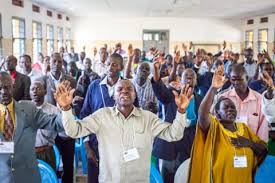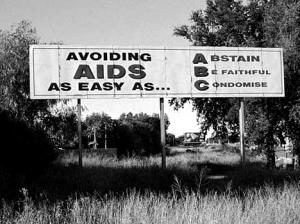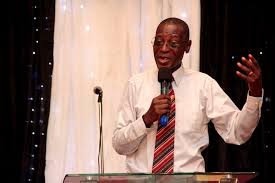
KAMPALA- “When the doctor told me that we needed to discuss the results of my blood test, I already knew I was positive; because Peter, my lover, had already been diagnosed positive,”
Hellen Nakato, tested for HIV, four years ago. The result was positive. It was hard for her to accept the news, since she saw this as an end to her dream of making a home.
She said the hardest thing to accept was her friends’ behaviour. “They did not treat me well. They refused to give me their support, isolated me,” she said adding that this was painful.
“I spent two years in agony, thinking that I would die anytime. I was bedridden and couldn’t leave the house, most times I would think about committing suicide,” says Nakato.
“If somebody spoke to me, it felt as if they were shouting. I couldn’t bear the light so my parents put me in a room with little light. Even lying in bed was painful,” she adds.
“Medical workers started me on ARVs which I was advised to consistently use in order to reduce my viral load.
She said in January 2015, quite by chance, she read an article about a spiritual healer and pastor of a Pentecostal church, “I told my mother about it and requested her to bring him pray for me,” Nakato, who is now bed ridden at Mbale REgionalReferral Hospital says.
She said by luck, the pastor came to their home, “’I didn’t know what to expect, but he listened intently to me for about 20 minutes and then started singing songs of worship before he went into tongues and started praying,”
‘As I began to relax, he placed his hands about a centimeter above my head. I felt as if he was putting his hands inside me and with his prayer, the pain just vanished – it went in an instant. That day, I felt more energetic than I had ever since I tested for HIV positive” she says.
Over the following two days, Nakato walked out of bed, strong enough and within a few weeks she was able to do domestic chores and even play, “I was healed by prayer without taking ARVs like others,” she said.
Nakato is just but an example of many people living with HIV/Aids who instead of using ARVs consistently as advised by medical doctors, abandon the medicine and seek miracles from Pentecostal churches to be prayed for and come out confessing that they have healed.
Although Nakato was convinced that prayer from the pastor had cured her of HIV/Aids, many other people were skeptical.
Nakato’s health started deteriorating in October 2016 because she stopped taking ARVs.
Faith healing miracles have preached against people seeking medical help. What is more worrying though is how some medical practitioners have turned on the side of the ‘healers’ to testify that they have heard many people confessing that “prayer and repentance” are freeing many from HIV/Aids.

“How can a man with no medical training treat a chronic painful disease merely by placing his hands over a patient’s body? For decades, researchers have dismissed cases such as Nakato’s as pure hoax,” Dr Jonathan Wangisi, the former project director for operational research at Taso Eastern region and now District Health Officer, Mbale says.
He adds: “Although we should take this phenomenon seriously even if we don’t understand it, we should also understand that nobody can be healed on HIV/Aids without treatment. What I know is that people just get the psychological healing and claim they have healed.”
Dr Wangisi says once one is tested and found to be HIV- positive, the patient’s CD4 count should also be tested and the patient should immediately be put on ARVs to avoid death and further infecting others.
He adds that although Pentecostal pastors agree there is no conventional cure for HIV/Aids, they have continued to pray and preach to all that, through a series of prayers and intercessions, they can cure the disease.
Dr Wangisi adds that because HIV treatment is lifelong, people living with the disease need to stay in good care and be consistent on treatment to reach viral load suppression and that it is important that viral load tests are done routinely.
Mr Anthony Nabale also living with HIV/Aids says he also tested HIV/Aids positive at Nsambya hospital in 2010 but later after prayer, he turned negative.
“I tested positive for HIV in February 2, 2010, I was immediately put on aspirin and anti-retroviral drugs. My day of healing came in May 2012, when after being prayed for I went back to Nsambya hospital to test for HIV and was shocked to have turned negative. Further checks at various clinics proved I was HIV-negative,” says Mr Nabale.
He explained that after his miraculous healing, he contacted his friends to announce his healing; and many who knew him, including his drinking mates, got saved.
But Nabale, who resumed treatment later, says because of these medications, many HIV-infected persons are able to reduce levels of the virus in the bloodstream (plasma viral load) to undetectable levels.
But for Pentecostal and other charismatic Christians, faith healing is considered one of the gifts of the Holy Spirit that can be received by believers, and as such requires no formal training to deliver or cure a disease.
Quoting from the Bible, James 5:14, Pastor Martin Nangoli of Wake up ministries says many people ask if they should be anointed with oil when sick to get healed and that he usually tells them to go ahead.
James 5:14 “Is anyone among you sick? Let them call the elders of the church to pray over them and anoint them with oil in the name of the Lord. And I think there is healing in this, we can’t dispute this,” says Pastor Nangoli.

He adds that it is important to note that many people living with HIV find value in the spiritual solace and psychological strength which faith healing can provide, and that there are pastors who may offer spiritual healing as part of supporting people on ARVs.
“The only problem is where religious or spiritual leaders give directives to refuse or stop taking lifesaving medication and instead rely on the healing power of faith alone,” said Pastor Nangoli.
Rev Can Prof Gideon Byomugisha, an Anglican priest, and the founder of African Network of Religious Leaders Living with or Persons Affected by HIV/AIDS and living with HIV says the role of religion and faith in our lives is mainly to strengthen us to endure, but HIV is not a curable disease.
“The people who are propagating miraculous healing messages by claiming to heal HIV/Aids infected people through prayers are doing a disservice to the nation because they are jeopardising efforts to reduce the spread of the disease,” says Rev Byomugisha.
Dr Byomugisha says ARVs can essentially shut down the HIV virus, greatly slow down the damage it does, and allow the immune system to recover.
He revealed that when people test HIV positive, they become desperate, looking for anything to find hope and that therefore, pastors are using this [nervousness] to confuse the population that one can be cured of HIV/Aids once he prays with faith.
He explained that he belongs to Pentecostal faith but that besides prayer, he started treatment in, and by 2000 his CD- 4 count had improved, the viral load reduced considerably and that by 2002 his viral load had become undetectable, as it is now.
“Last month I took a CD-4 count, and it was 736 above the average of 400,”
He explained that people should be enlightened that ARVs are God’s plan in conquering HIV and AIDS, and that doctors, like prophets, healers and pastors are His vessels.
“Healing comes through the intervention of supernatural and natural forces and God’s intervention comes in many forms and what is important at the end is the realisation that the totality of healing is not an individual effort,” added Rev Byomugisha.
Dr Emmanuel Luyirika, the executive director at African Palliative Care Association says, HIV drugs are very important in keeping people healthy over the years.
He explained that for people who are sick from HIV, ARVs can be lifesavers because effective and consistent treatment stops or slows the progression of HIV and has important benefits, even for persons whose immune systems appear to be functioning relatively well.
He added that for people whose immune systems are weaker, starting treatment is urgent and that for people whose immune systems are still strong, it is important to start HIV medications before their immune systems suffer more.
“Studies show that starting treatment early may be the most effective way to prevent long-term consequences of HIV and treatment dramatically reduces the risk of passing HIV infection to sex partners. For pregnant women, it greatly reduces the chance of infecting the baby in the womb or at birth. In general, HIV drugs are recommended for all people with HIV infection, whether they are sick or well,” said Dr Luyirika while addressing journalists at the African Centre for Media Excellence in January. Dr Vinand Nantulya, the former chairman of Uganda Aids Commission said the national HIV prevention strategy should continue to embrace ‘ABC’ – a strategy for Abstinence, Being faithful, and consistent and correct Condom use – as well as an array of biomedical interventions.
“Those who cheat must use condoms correctly and consistently. Those who feel cheated [on] must take an HIV test. If we don’t do that, we shall not be able to reduce HIV infections in Uganda with only prayer,” said Dr Nantulya.

Dr Stephen Watiti, a senior medical officer and clinic manager at Mildmay Centre says although he is a born-again Christian, he has besides prayer taken ARVs in order to live longer and that ARVs have made fundamental changes in his life that shaped his life.

He said drugs like information about HIV transmission and AIDS treatment and care is essential for any country, community, or person to be able to mount an effective fight against HIV/AIDS.
“But even when I am a Christian what disturbs me is, what exactly churches mean by healing? Can healing always occur? Can healing occur without physical cure? Are the claims sustainable? I know that divine healing in Africa arises from the poverty in the communities that are plagued by the collapse of the health care delivery system,” said Dr Watiti.
The advent of HIV/AIDS has brought new dimensions to spirituality and healing which has somehow exposed multitudes; Christians and non-Christians alike, to people disguised as healers, pastors and prophets who rightfully or cunningly claim that the Holy Spirit defeats all illnesses.
Dr Watiti says he has seen prescription of prayers, the use of oil, holy water and other agents to effect healing sometimes defeats attempts to contain the spread and potency of HIV and AIDS as those who are said to have been healed stop taking antiretroviral therapy.
“I think as Christians and church leaders we have a role to play in the fight against suffering, especially in the era of HIV and AIDS. I know that healing is not only physical but is also spiritual, we need to join hands to help our people take medicine to successfully fight HIV/Aids,” said Dr Watiti.
The Ministry of Health estimates that by the end of 2015, about 1.46 million people in Uganda were living with HIV and that the HIV prevalence in the general population increased from 6.4% in 2005 to 7.3% by 2011.
The number of people enrolled on antiretroviral therapy (ART) increased from about 330,000 in 2011 to about 750,896 in 2014.
Florence Buluba, the executive director of the National Community of Women Living with HIV in Uganda (NACWOLA), says over half of the 100,000 members of her organization have lived with HIV for more than 20 years because they are on drugs.
“Only those who get infected with other diseases like cancer and those who do not adhere to treatment have died; those who went on treatment before getting so sick and have adhered have survived,” she explained.
WHO recommends ART for all people with HIV as soon as possible after diagnosis without any restrictions of CD4 counts and also recommends giving ARVs to people who do not have HIV, but are at high risks of infection as an additional prevention strategy.
The Minister of Health Dr Jane Aceng says that in Uganda, the policy is that HIV – positive people are enrolled on ARVs when their immune system declines to 500 CD4 cell amount or below.
She said even the HIV-positive partners in discordant couples (where only one has HIV and the other is negative) are also put on treatment irrespective of their CD4 cell count.
“This is done first of all to improve their health and protect the other partner who is HIV-negative from getting infected and it has been proved that effective treatment of a person living with HIV suppresses their chance of passing on the virus to their partners by over 96%,” Dr Aceng said.
She revealed that other people who qualify for ARVs, irrespective of their CD4 cell counts, are those co-infected with tuberculosis, children under 15 years of age, and most-at-risk populations, such as prostitutes.
“We are slowly moving towards the WHO recommendation of treating all people who test HIV-positive without any restrictions of the CD4 counts. This is important if we are to reach the UN 90-90-90 target so we need all spiritual healers on board,” Dr Aceng said.
According to Dr Watiti, faith healing is a roadblock to the successful fight to reduce the spread of HIV/AIDS and that several people who have tested positive have abandoned medical treatment because they were declared cured by the pastors.
He explained that pastors, preachers and medical practioners should stand up to give people hope that it is possible to live positively for a long time once you are on ARVs and become ambassadors of change by keeping up-to-date on matters of policy and research.
“And those who have been on treatment for some time should support those starting treatment and are struggling with issues of side-effects, for instance because the best way to go is to treat those infected with HIV/Aids,” said Dr Watiti.




